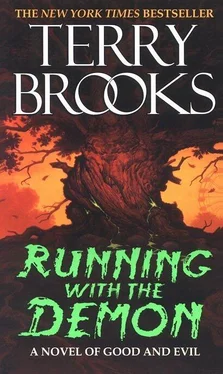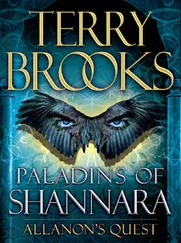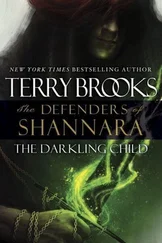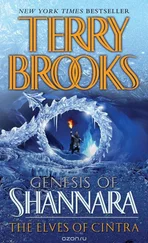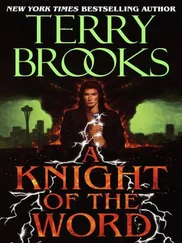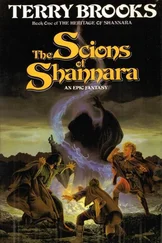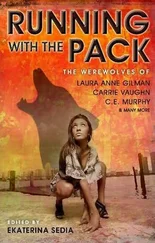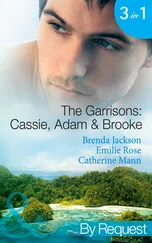Two Bears continued to chant, his deep voice steady and toneless. Nest felt the first stirrings of doubt mingle with her uneasiness. Nothing was happening; maybe nothing would.
Then a wind blew off the river, cool and unexpected, carrying with it the smell of things forgotten since childhood–of her grandmother's kitchen, of her sandbox, of Riley, of her cedar toy chest, of Wisconsin's lakes in summer. Nest started in surprise. The wind brushed past her and was gone. In the stillness that followed, she felt the hair on the back of her neck prickle.
Small glimmerings of light appeared at the edges of the burial mounds, rising up into the night, flickering and fading again, moving with rhythmic grace against the darkness. At first they were nothing, simply bright movements that lacked definition. Slowly they began to take shape. Arms and legs
appeared, then bodies and heads. Nest felt her throat tighten and her mouth grow dry. She leaned forward, peering expectantly, trying to make certain of what she was seeing. On her shoulder, she heard Pick utter a faint, surprised exclamation.
Then up from the darkness rose the Sinnissippi, their spirits taking form, coming back into a shadowy semblance of their lost bodies. They lifted free of the earth to hang upon the air, twisting and turning hi small arcs. They were dancing, Nest could see, but not hi the fashion she had expected, not as Indians did in the television shows and movies she had seen, rising and falling in that familiar choppy motion, but in another way altogether. Their movements were more balletic, more sinuous, and they danced free of one another, as if each had a story to tell, each a different tale. Nest watched, awed by the beauty of it. After a time, she felt the dance begin to draw her in. She thought she could sense something of what the dancers were trying to convey. She felt herself swaying with them, heard the sounds of their breathing, smelled the sweat of their bodies. They were ghosts, she knew, but they were real, too. She wanted to call out to them, to make them turn and look at her, to acknowledge her presence. But she stayed silent.
Suddenly Two Bears was on his feet and striding forward. He reached the dancers and joined hi their dance, his big, powerful body swaying and weaving as smoothly as their own. Nest marveled at the ease with which he moved, smiled at his grace. She felt the heat of his body fill her own, as if his pulse had mingled with hers. She watched in shock, then with a glimmer of terror, as his flesh–and–blood body began to fade into the darkness and turn as ghostly as the spirits of the dead Sinnissippi. There were drums now, their booming rising out of the night–or maybe the sounds were only in her mind, the rhythm of her heartbeat. She watched Two Bears become one with the dead, watched him become as they were, translucent and ephemeral, ghostly and unreal. She stared transfixed as he danced on, the sound of the drums heightening, the movements of the dancers quickening. She felt the summer's heat flood through her, causing her to blink against sudden flashes of crimson and gold.
Then she was on her feet as well, dancing with Two Bears, moving through the ghosts of the Sinnissippi. She did not feel herself rise or walk to him, did not know how it came to pass, but suddenly she was there among the Indian spirits. She floated as they did, not touching the earth, suspended on the night air, caught between life and death. She heard herself cry out with joy and hope. She danced with wild abandon and frantic need, whirling and twisting, reaching for something beyond what she could see, reaching past memories, past her own life, past all she knew…
Like a fever dream, the vision appears to her then. It comes out of nowhere, filling her mind with bright colors and movement. She is in another pan of the park, a part she does not recognize. It is night, black and clouded, empty of moon and stars, a devil's night filled with pitch. Dark figures run through the trees, hunched over, lithe and supple. Feeders, she sees, dozens of them, their yellow eyes gleaming in the black. She feels her stomach knot with the realization that' they are certain to see her. Across the grassy stretches and along the pathways they bound, swift and certain. A woman leads them, young and strong, her shadowed face smiling and wild–eyed, her long, dark hair streaming out behind her. Nest blinks against the sight-a human at play with feeders, running with them, unafraid. The woman spins and wheels, and everywhere she goes, the feeders chase after her. She teases and taunts them, and it is clear that they are infatuated by her. Nest stands spellbound within the darkened park, staring in disbelief as the woman rushes toward her, all wicked smiles and laughter. She looks into the woman's eyes, and sees there the lines that have been crossed and the taboos that have been broken. She sees the woman's life laid bare, sees her soul unfettered and her heart unafraid. She will dare anything, this woman, and has. She will not be cowed or chastened; she will not be made ashamed.
She dashes into Nest's arms, draws her close, and holds her tight. Nest recoils, then stares in shock. She knows this woman. She recognizes her face. She has seen her face, just as it is now, in a collection of framed photographs that sits upon the mantel over the fireplace in the living room. It is Caitlin Anne Freemark. It is her mother.
And yet it isn 't. Not quite. Something is amiss. It is almost her mother, but it is someone else, too. Nest gasps in shock, not quite certain what she is seeing. The woman breaks free, her face suddenly filled with regret and despair. Behind her, barely visible in the darkness, a man appears. He materializes suddenly, and the feeders, who are clustered all about the woman, give way instantly at his approach. Nest tries to see his face, but cannot. The woman sees him and hisses in anger and frustration. Then she flees into the night, racing away shadow–quick with the feeders bounding in pursuit, and is gone.
Nest blinked anew against the darkness and the sudden bright pain that stabbed her eyes. Images whirled and faded, and her vision cleared. She was sitting once more on the grass, cross–legged in the darkness, her hands clasped before her as if in prayer. Two Bears was seated next to her, his eyes closed, his chiseled body still. In the distance, the burial mounds rose silent and empty of life. No lights moved across the grassy slopes; no warriors danced on the air above. The ghosts of the Sinnissippi had gone.
Two Bears opened his eyes and stared out into the darkness, calm and distanced. Nest seized his arm.
"Did you see her?" she asked, unable to keep the anguish from her voice.
The big man shook his head. His painted copper face was bathed in sweat, and his brow was furrowed. "I did not share your vision, little bird's Nest. Can you tell me of it?"
She tried to speak, to say the words, and found she could not. She shook her head slowly, feeling paralyzed, her skin hot and prickly, her face flushed with shame and confusion.
He nodded. "Sometimes it is better not to speak of what we see in our dreams." He took her hand in his own and held it. "Sometimes our dreams belong only to us."
"Did it really happen?" she asked softly. "Did the Sinnissippi come? Did we dance with them?"
He smiled faintly. "Ask your little friend when you find him again."
Pick. Nest had forgotten him. She glanced down at her shoulder, but the sylvan was gone.
"I learned many things tonight, little bird's Nest," Two Bears told her quietly, regaining her attention. "I was told of the fate of the Sinnissippi, my people. I was shown their story." He shook his head. "But it is much more complicated than I thought, and I cannot yet find the words to explain it, even to myself. I have the images safely stored" — he touched his forehead — "but they are jumbled and vague, and they need time to reveal themselves." His brow furrowed. "This much I know. The destruction of a people does not come easily or directly, but from a complex scheme of events and circumstances, and that, in part, is why it can happen. Because we lack the foresight to prevent it. Because we do not guard sufficiently against it. Because we do not truly understand it. Because we are, in some part, at least, the enemy we fear."
Читать дальше
